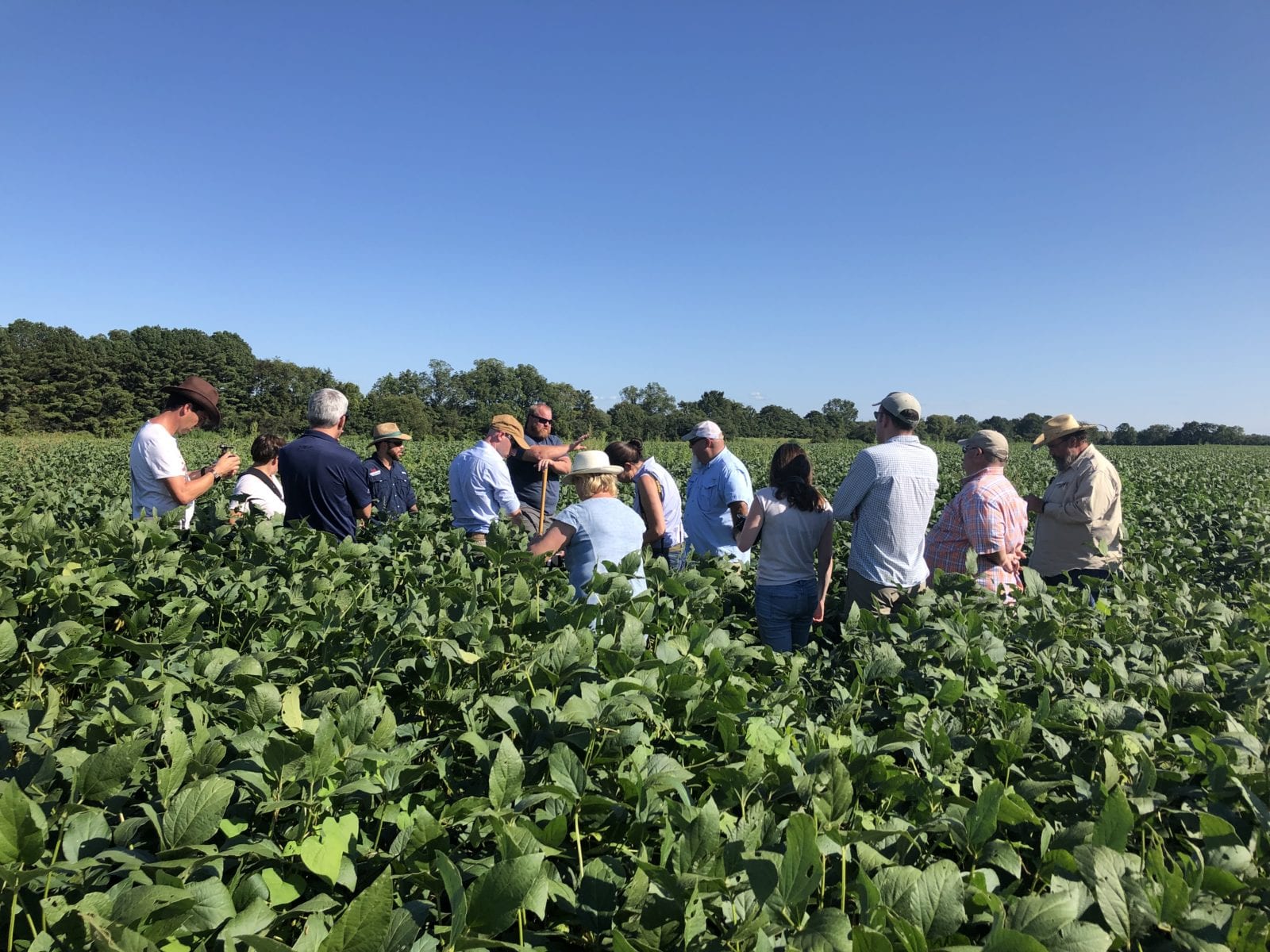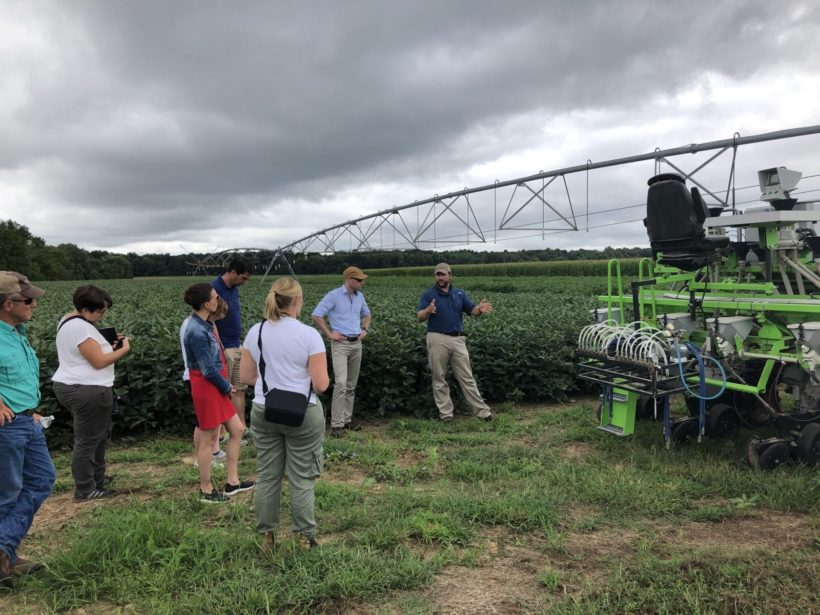European Group Visits Tennessee and Arkansas on Sustainable Soy Tour
- Category:
- General News
- Sustainability

With support from the Tennessee Soybean Promotion Board, USSEC recently organized a week-long visit to Tennessee and Arkansas for a group of contacts from Germany, Belgium and the United Kingdom. The group included agricultural journalists and farm bloggers, feed industry representatives, a trading company and livestock producers. The focus of the tour was on sustainable soybean production.
In the countries of Northern Europe, there is increasing consumer awareness of where their food comes from. The global attention on Brazil and the environmental issues related to deforestation and clearing of the Amazon rain forest have also heightened awareness of soybean production. Making European consumers, as well as retailers and feed companies, aware of the distinctions between U.S. and Brazilian soy is the challenge. Promoting the sustainability of U.S. soybean production is one of the answers.
The tour began with a visit to Agri Center International in Memphis where John Butler, President, and his colleagues made presentations on their collaborative research projects. One of the largest “agri-tourism” sites in the United States, the center plays an important role in bridging the gap between consumers and production agriculture. Soybeans are an important crop in their research but they are actively researching potential alternative crops and organic production. With favorable factors such as climate, soil type, access to infrastructure and markets, the center staff believe that the Delta region has tremendous potential to diversify and expand production, aiming to meet the changing demands of local, national and international consumers.
The first afternoon included a trip to Jackson, TN and the headquarters of the Tennessee Soybean Promotion Board where Director Parks Wells provided a briefing on the functions and activities of the Board. Colleen Coury welcomed the group on behalf of Tennessee governor Bill Lee. Curt McDaniels, Area Conservationist with the U.S. Department of Agriculture’s (USDA) Natural Resources and Conservation Service (NRCS) gave a presentation on the numerous conservation and sustainability related programs and activities that NRCS is implementing with producers in Western Tennessee.
The day of farm visits organized by NRCS started with a stop at the Griggs Farms in Humboldt, TN, where Matt and Kelly Griggs warmly welcome the group to their fifth generation Tennessee Century Farm. Over the last twenty years, the Griggs have transformed from monocrop production with conventional tillage to a strict crop rotation, no-till and cover crop production method. The Griggs’ commitment to improving soil health and sustainable farming practices made a strong first impression on the European guests.
At the farm, USDA/NRCS’s State Conservationist, Sheldon Hightower and his colleagues joined the group. Hightower said that the success of any of their programs is based on the trust built between the NRCS staff and the producers.
The group next visited the farm of Charlie Roberts in Lauderdale County. Charlie is a fourth generation farmer who has been using cover crops since 2011. Charlie noted that by emulating nature with multi-species cover crops, he is increasing the diversity of soil organisms and reducing soil erosion, both critical components for improving soil health.
The next day began with a visit to the ADM loading facility on the Mississippi River in Memphis. Duane Dunlap and his colleagues provided details on the facilities operation and guided a walking tour for the group.
The group then crossed the Mississippi River and made their way to Arkansas where the itinerary was developed in close cooperation with the University of Arkansas and their Discovery Farms Program. Mike Daniels and Andrew Sharpley of the University of Arkansas’ Agricultural Extension Program provided great support and hospitality. Over next two days, the group visited the soybean farms of Wilbur Wood in Cherry Valley; Adam Chappell in Cotton Plant; and John Maus in Atkins, with a stop at the Point Remove Wetlands Reclamation and Irrigation District Office. Lunch was provided by Debbie Moreland of the Arkansas Association of Conservation Districts. An unscheduled highlight was the visit to the Ralston Family farm where the group toured the new rice mill and processing facility. The final farm visit was at the beef and poultry farm of Jeff Marley in Elkins.
The last morning was spent at the University of Arkansas in Fayetteville, AR where the University’s Vice President for Agriculture Mark Cochran warmly welcomed the group. Dr. Marty Matlock and his colleagues provided briefings on the various aspects of sustainability. Jamie Burr from Tysons Food made a presentation on Tyson’s operations and their sustainability commitments.
One of the objectives of the program was to demonstrate to the European guests that American soybean producers are committed to improving soil health, reducing chemical fertilizer and pesticide use and better management of water resources while increasing productivity and improving the land for future generation. Commitment to these ideals was evident at every stop along the way – from the research being conducted at the Agri-Center International and the University of Arkansas to the public and private institutional support from the USDA and the Tennessee Soybean Promotion Board to the enthusiasm and commitment shown by the farmers and producers themselves. Again, USSEC was able to put the best face of American soybean producers forward and reinforce U.S. Soy’s commitment to sustainable soybean production.



